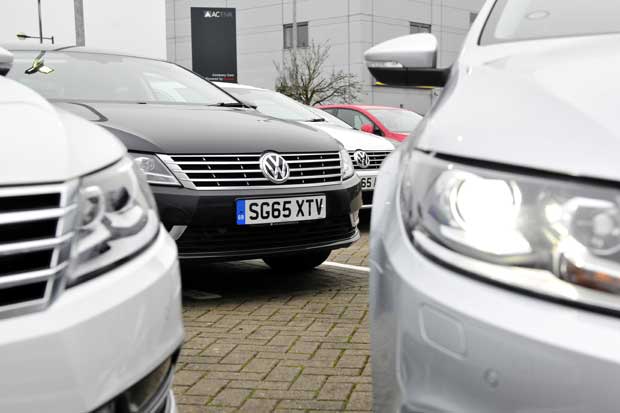1 December 2017
Company car tax and VED rates to switch to WLTP CO2 figures from 2020
Company car benefit-in-kind tax and Vehicle Excise Duty (VED) will be based on carbon dioxide (CO2) emission figures derived from the recently introduced worldwide harmonised light vehicles test procedure (WLTP) from April 2020.

Amid fears that could spell higher tax and VED rates, fleet industry leaders have called on HM Treasury to adopt a revenue-neutral approach.
Company car benefit-in-kind tax and VED is currently based on CO2 emissions figures calculated using the New European Driving Cycle (NEDC) vehicle-testing procedure.
However, from 1st September 2017 the NEDC regime has been replaced by the WLTP test procedure.
The fleet industry has been calling on the government to clarify when company car benefit-in-kind tax and Vehicle Excise Duty systems would switch to using data derived from the WLTP regime.
Chancellor of the Exchequer Philip Hammond used the autumn Budget Statement to announce that NEDC figures would continue to be used until April 2020, when the new WLTP figures will be introduced.
The government has said that following discussions with the car industry it considered that the timeline for introducing the new system would give manufacturers time to reflect the new values in all of their vehicles, and to explain to customers what the change would mean.
Industry experts have suggested that CO2 figures on a car-by-car basis could increase by about 20% with introduction of WLTP data, leading John Pryor, Chairman of fleet decision-makers’ organisation ACFO, to say: ‘ACFO does not want to see huge increases in company car tax bills as a result of the change, otherwise it will be a further nail in the coffin of company car demand with employees opting to take cash.’
However, whether CO2 emission thresholds will be recalibrated to take account of any increase remains to be seen. In the Budget, there was no indication as to whether tax bands and CO2 levels would be realigned.
If tax thresholds remain unchanged - tax rates have already been announced to the end of the 2020/21 financial year - then the likelihood is that company car benefit-in-kind tax bills will rise significantly.
Figures published by automotive industry data provider JATO for a handful of models indicate the CO2 g/km difference between NEDC and WLTP derived figures.
For example, the CO2 g/km figure on a BMW X5 3.0D Xdrive automatic jumps from 156g/km to 183g/km. If already published tax tables were used to calculate the percentage of P11D due in 2020/21 a driver’s tax bill would jump just one tax band from 36% to 37% assuming no company car tax diesel supplement was due.
However, for a Peugeot 308 1.2 PureTech 130 Active SW with emissions up from 106g/m to 121g/km the model would move from the 25% tax bracket in 2020/21 to the 29% tax band. Meanwhile, a Volvo XC60 2.0 D4R Design Geartronic 4WD with emissions up from 133g/m to 148g/km would switch from the 31% tax bracket in 2020/21 to the 34% threshold.
However, industry organisations have said that they have been told by HM Treasury that it did not see WLTP as a tax-raising development, but rather as a transition. Therefore, it is hoped that changes in the way vehicles were being tested would not be seen as a mechanism for raising more tax.
Industry figures agree with Mr Pryor that tax bands should be realigned to take account of typically higher CO2 emissions figures reported under WLTP testing.
Paul Hollick, Chairman of fleet industry training organisation ICFM, said: ‘If the introduction of a company car benefit-in-kind tax system linked to new WLTP emissions data does not result in a wholesale restructure of band thresholds tax bills will increase significantly. The result will be that employers and employees abandon company cars as a benefit that is too expensive. Instead employers and employees will turn to cash and PCH alternatives.’
And Gerry Keaney, Chairman of the British Vehicle Rental and Leasing Association, of which Activa Contracts is a member, welcomed final confirmation that a new WLTP-based CO2 company car tax regime would be introduced in 2020.
However, he added: ‘Although we had pushed for the vehicle leasing industry to be given an extra year to prepare for these changes, we look forward to working with the government in developing a tax revenue neutral approach.’
He added: ‘We are also disappointed that the government has not given any further clarity on company car tax rates beyond the 2020 tax year. This information is vital as BVRLA members work with their customers in putting drivers into the most affordable, safest low-emission vehicles.’


